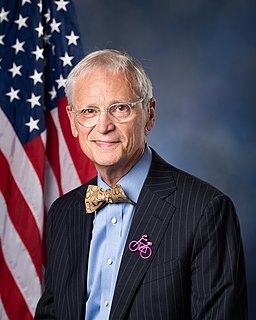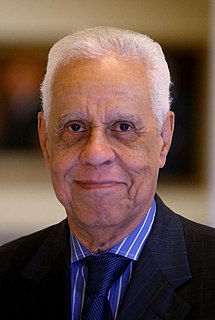A Quote by Hisham Matar
My best hope is that Libya turns into a peaceful, sensible country that has all the things my father and lots of others have been calling for: independence of the courts and press, a protected and democratic constitution, with different parties involved in a healthy and open debate.
Related Quotes
And to me, that is the greatest danger, that people start questioning basic facts and start not understanding the importance of democratic institutions such as the free press. I mean, to call the press the enemy is dangerous and just remarkably bizarre. The press is the only profession protected in the Constitution because of how important the framers viewed the press. But in authoritarian regimes, they control the press. And to me, going down an authoritarian path is the greatest danger that we face as a republic.
Famines are easy to prevent if there is a serious effort to do so, and a democratic government, facing elections and criticisms from opposition parties and independent newspapers, cannot help but make such an effort. Not surprisingly, while India continued to have famines under British rule right up to independence... they disappeared suddenly with the establishment of a multiparty democracy and... a free press and an active political opposition constitute the best early-warning system a country threaten by famines can have.
The complete independence of the courts of justice is peculiarly essential in a limited Constitution. By a limited Constitution, I understand one which contains certain specified exceptions to the legislative authority. Limitations of this kind can be preserved in practice no other way than through the medium of courts of justice, whose duty it must be to declare all acts contrary to the manifest tenor of the Constitution void. Without this, all the reservations of particular rights or privileges would amount to nothing.
The Irish Free State was one of dozens of new European democracies to emerge from the cauldron of the 1914-1918 war. It was one of the very few that was still democratic in 1939. This book shows how the steely determination of one man, Kevin O'Higgins, made this possible. O'Higgins faced down mutinies in both the Gardai and the Army. He dissolved the Dáil Courts which were a parallel system that might easily have undermined the conventional courts. With WT Cosgrave, he put through a constitution which reconciled the local opponents of independence with the new State.
[A]s it must be admitted that the remedy under the Constitution lies where it has been marked out by the Constitution; and that no appeal can be consistently made from that remedy by those who were and still profess to be parties to it, but the appeal to the parties themselves having an authority above the Constitution or to the law of nature & of nature's God.
I think frustration unfortunately, reflects a real breakdown in the political parties themselves, which is fascinating because our constitution did not anticipate political parties. They're not even written in the Constitution, there's no guidelines. When we look at the arcane processes of delegate selection in the primaries and caucuses, it's not in the Constitution. This is all created post Constitution. And yet I think we're in the middle of tensions between and within the political parties. They're not functioning that well.





































